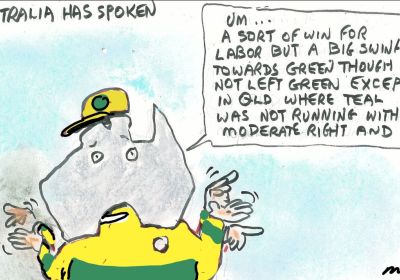
The cashed-up United Australia Party ran in every seat but only won 4.12% of the vote. Peter Boyle argues that it is the rise of the climate movement that holds the real promise to prevent right-populism from rising to US levels of support.

The cashed-up United Australia Party ran in every seat but only won 4.12% of the vote. Peter Boyle argues that it is the rise of the climate movement that holds the real promise to prevent right-populism from rising to US levels of support.

As the rich and powerful have always done, Clive Palmer is boasting he will spend $100 million on influencing the outcome of the federal election. Peter Boyle reports.
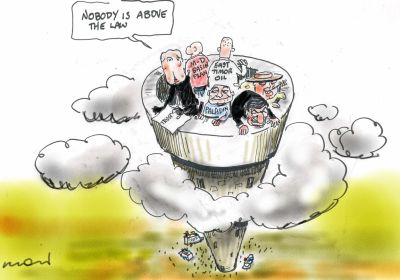
Billionaire mining magnate Clive Palmer has launched multiple court actions against the Western Australian government and its premier. Jim McIlroy argues that with organisation and struggle, we can challenge the ill-gotten wealth of the 1%.
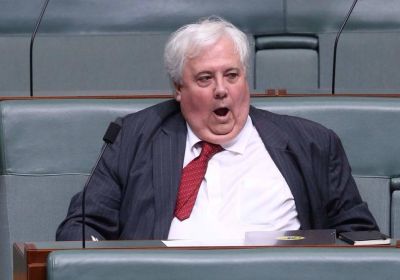
The bizarreness of Australian politics was summed up in multi-millionaire mining magnate Clive Palmer’s election advertisement accusing Labor of “supporting the big end of town”. He's right, though he is in no position to point the finger, writes Carlo Sands.

Regular readers of Green Left Weekly will sometimes admit their favourite part of the paper is Carlo’s Corner, the semi-regular satirical column by comic writer and performer Carlo Sands.
In a paper filled with heavy and even gloomy topics, people appreciate the chance to laugh — especially at the seemingly all-powerful forces who presume to be our betters yet cause so much pain.
“No joke can change the world, or really anything at all,” Sands says, ahead of his stand up show Inspired? at the Sydney Fringe Comedy Festival.

The article below is based on a talk by Felipe Stuart Courneyeur to the Canada-wide convention of the Canadian Network on Cuba, in Toronto in June.
Courneyeur has dual Nicaraguan-Canadian nationality; he divides his time between the two countries. He is an active member of the Sandinista National Liberation Front (FSLN). The article is abridged from johnriddell.wordpress.com.
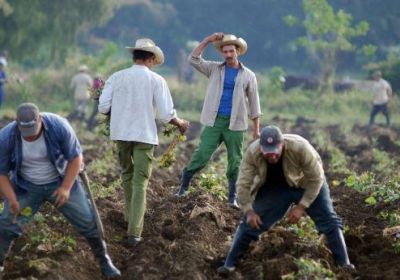
Cuba’s Council of Ministers approved “Life Task” (Tarea Vida) on April 25, a plan for confronting climate change.
It is the latest manifestation of Cuba’s sustained endeavour to contain the impact of climate change. The Cuban government has dedicated resources and talent to the project for many years. Policymakers have relied on facts, data, and ongoing research.
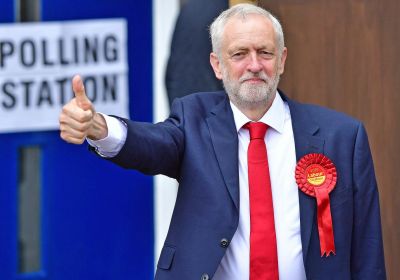
Theresa May is now Britain’s prime minister in name only. Leading a government that may collapse within days, propped up (she hopes) by the homophobes of the Democratic Unionist Party, it is clear her time is nearly up.
So while May is in office but not in power, who has stepped into the vacuum of leadership she has left? Jeremy Corbyn.
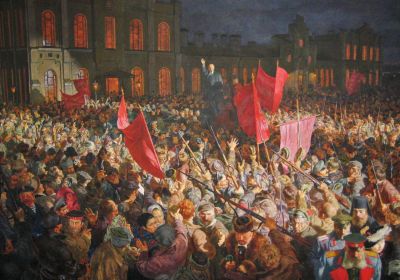
The year 1917 offered an extraordinary course in political literacy for the people of Russia.
In the February anti-Tsarist revolution, which “dispensed breakneck with a half millennium of autocratic rule”, and then in the October socialist revolution, eager workers and peasants stumbled over and then mastered a new way to speak of economic and political democracy, writes China Mieville in October, his narrative of the Russian Revolution.
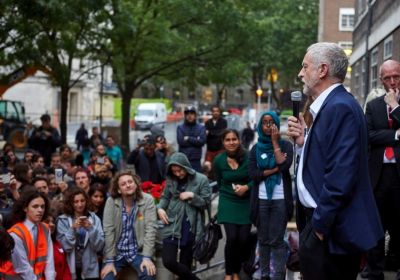
This is going to be an election based more on competing policies and visions of society than any other election for a long time. Mark Serwotka, general secretary of the Public and Commercial Services union, pointed out at the London May Day rally that this is completely different to the past two elections where the challenge was to spot the difference — elections that Labour lost.